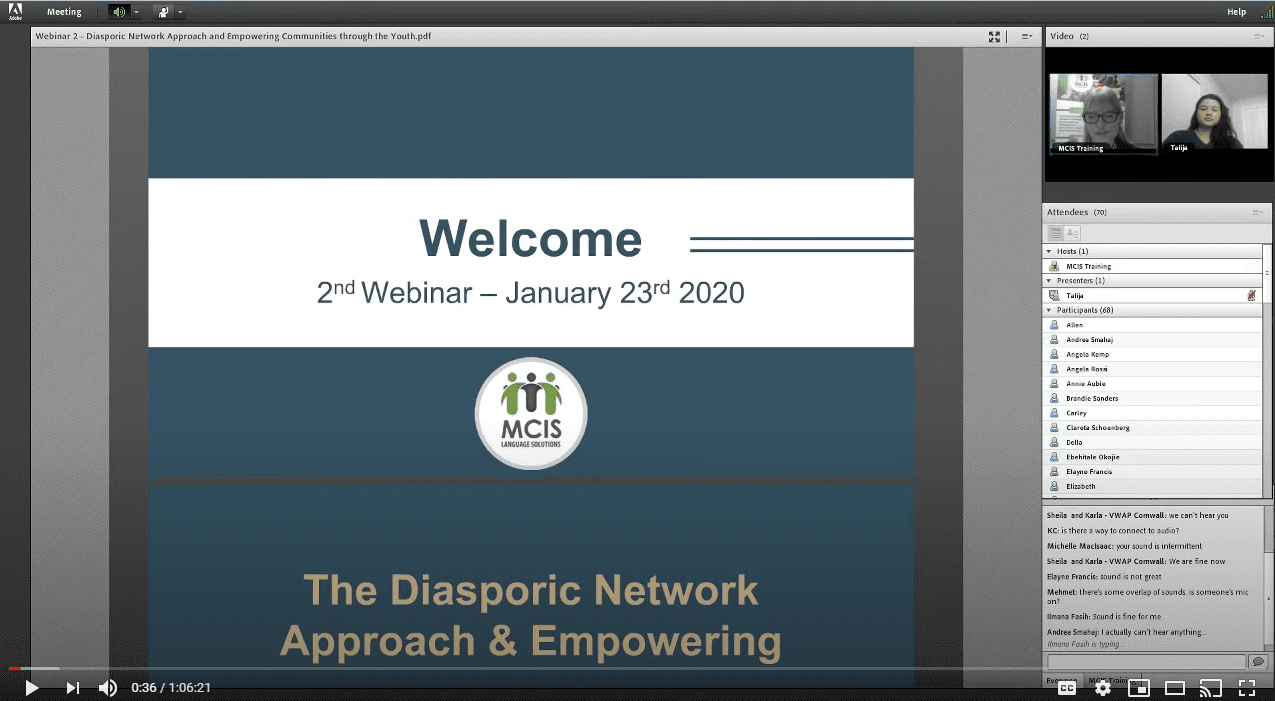
Human Trafficking: The Diasporic Network Approach and Empowering Communities through the Youth
The Diasporic Network Approach was introduced in the first webinar as a nuanced concept that takes into account the intersections between traffickers, victims, and diaspora communities within the Human Trafficking Chain. Not enough research has gone into this area, but from general research with regards to human trafficking, what can be safely concluded are those that are most vulnerable to human trafficking are children. With the fact that young people are potentially most at risk, it is important to provide them with basic knowledge of human trafficking that is not sensationalized.
According to a preliminary literature review, people are more willing to listen and change their views and behaviour if they believe that the one passing the message is similar to them and/or has faced similar concerns and pressures. This is also known as peer education, where young people pass knowledge on to their peers. Successful peer education contributes to knowledge and understanding of sensitive topics – and is a small step to addressing intergenerational trauma.
This webinar will examine the possible reasons as to why children are most vulnerable to human trafficking; the importance of respecting children as their own person; and importance of trauma-informed approaches to address this vulnerability. Peer Prevention strategies from Croatia and Serbia will be discussed, along with local Peer Prevention Strategies available in Toronto.
Click here to view.
